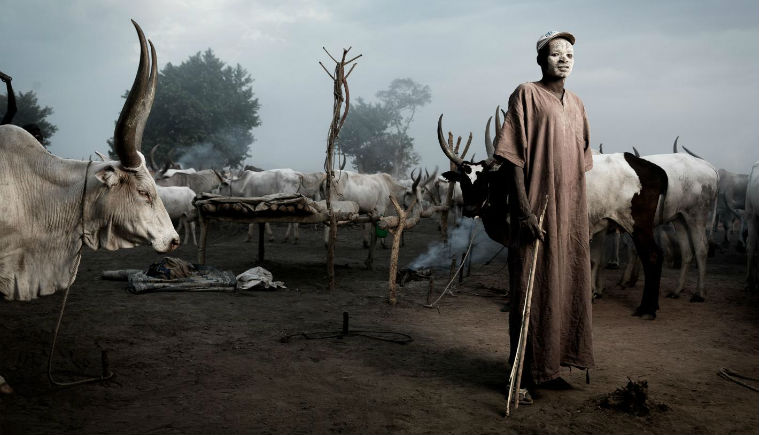The Mundari are a small ethnic group of South Sudan. They are a part of the Karo people. South Sudan is the world’s youngest country, and it has witnessed immense change since gaining independence in 2011.
The Mundari, like other Nilotic tribes, are very cattle-oriented. Cattle serve as food, a form of currency and a mark of status. Their breed of cows, Ankole-Watusi, grow up to eight feet tall and are worth up to $500 each. It’s no wonder the Mundari view these animals as their most valuable assets (or that they guard them with machine guns).
Marriages are arranged by the prospective groom offering cattle to the bride’s family and husbands may take as many wives as they can support. The Mundari engage in perennial cattle raiding wars with the Bor Dinka during the dry season.
A South Sudanese tribe whose members use cow urine to wash their bodies and bleach their hair. To largely keep themselves clean, Mundari men will squat under streams of cow urine, which they see as a natural antiseptic to fight infections. This in turn gives their hair an orange tint. As an essential, cow dung is piled up high for burning, and the herdsmen will subsequently smear the peach-coloured ash on their bodies as a way of protecting themselves from the harsh weather.
The Mundari also cultivate sorghum and catch fish using nets and spears. In common with other Nilotic tribes in Sudan, the Mundari practice ritual scarification as a rite of passage into adulthood for young men. The typical Mundari scar pattern consists of two sets of three parallel lines, each on either side of the forehead, extending in a downward slope and unconnected in the middle.
Photo Credit: This is Africa

